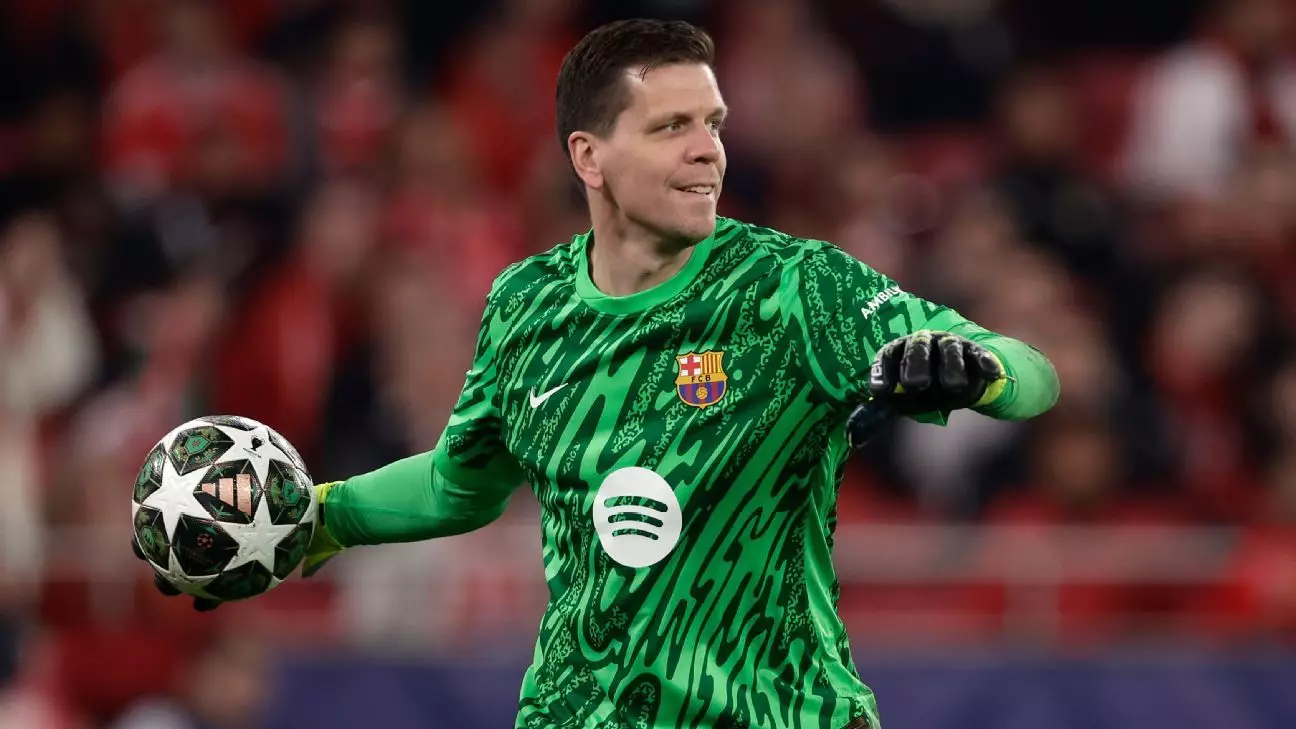Wojciech Szczesny, the 35-year-old goalkeeper for FC Barcelona, has dared to confront a taboo that many athletes choose to sidestep: smoking. His recent admission to ESPN, where he candidly proclaimed his struggles with nicotine addiction, has not only sent ripples through the world of football but also highlighted the often-ignored imperfections of professional athletes. In a realm where physical prowess and dependability are paramount, Szczesny’s openness serves as a reminder that, behind their formidable exteriors, these athletes grapple with personal battles that resonate within the broader human experience.
Szczesny’s self-awareness is remarkable. In an age where athletes typically prioritize presenting themselves as paragons of virtue, the goalkeeper has chosen transparency over deception. His admission that he has “lost the fight” against smoking is a call to action for fans and aspiring athletes alike. It is telling that he encourages young supporters not to emulate him, serving as an unconventional role model by demonstrating vulnerability rather than perfection. This honesty is both refreshing and courageous in a sport often clouded by the pressure to maintain an exemplary image.
The Dichotomy of a Role Model
It is intriguing how Szczesny views himself as a dual role model. On one hand, he willingly accepts the responsibility of being a positive influence—one who strives to inspire young players with his work ethic and performance on the field. Conversely, he recognizes his shortcomings, particularly concerning smoking, which he openly labels as a detrimental habit. This duality is essential; it paints a comprehensive picture of who he is, balancing achievements with failures.
Although he jests about his minimal contribution to the team’s remarkable performance this season, leading to just one loss in 27 matches, it is crucial to acknowledge the fortifying role he plays. Accumulating 13 clean sheets, he has become a vital cog in Barcelona’s campaign, instilling confidence among his teammates. Szczesny’s contributions are not merely statistical; they represent resilience and relentless determination that fuel the team’s competitive spirit, particularly as they chase titles in La Liga, the Copa del Rey, and the Champions League.
The Unspoken Truth: Smoking in Football
Szczesny’s forthrightness on a subject that is typically brushed aside in professional sports brings attention to a broader systemic issue. The habit of smoking, often associated with poor physical health, seems paradoxical in the high-performance environment of elite athletes. His statement, “I would rather not talk about it,” speaks volumes about the cultural stigma surrounding smoking in sports. It reveals a glaring contradiction: while athletes are viewed as icons of fitness and health, the realities of their personal choices may tell a different story.
The goalkeeper’s experience prompts a larger discussion about the pressures athletes face regarding image and lifestyle choices. In a world where social media magnifies every action, the public likability of a player may hinge on various aspects, from their performance to their personal habits. Szczesny’s approach to candidly discuss his vices challenges the status quo and encourages a more truthful dialogue about athlete wellness.
Beyond the Pitch: A Valuable Message
Ultimately, Szczesny transcends traditional athletic narratives. His candidness is an invitation for deeper reflection on the pressures athletes endure—pressures that compel them to hide their flaws, whether they be smoking, drinking, or other personal struggles. By openly discussing his battle, Szczesny becomes more than a footballer; he becomes a mentor, demonstrating that perfection is unattainable and that honesty should be prioritized over the façade of flawlessness.
His story serves as an essential reminder: that even those who seem invincible have their vulnerabilities. In doing so, he draws attention to the necessity of fostering environments within sports that allow athletes to acknowledge their challenges without fear of repercussion. Athletic excellence should celebrate both strength and vulnerability, offering a holistic understanding of what it truly means to succeed in sports and life. Such insights are invaluable as society grapples with how we define athletes—not only for their greatness on the field but for their humanity beyond it.

Leave a Reply